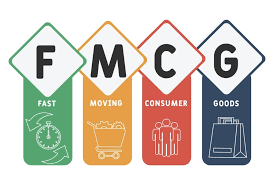Nigeria’s fast-moving consumer goods leaders have been urged to adapt to rapidly evolving consumer preferences, prioritising health-conscious, premium, and sustainable products to stay competitive, as economic pressures reshape brand loyalty.
The call came at the 6th Industry Summit championed by Goddie Ofose at the Chartered Institute of Bankers House in Victoria Island, in Lagos, themed “Understanding Changing Consumer Preferences in Troubled FMCG Space.”
The FMCG sector, a cornerstone of Africa’s most populous economy, faces both opportunity and strain. With the population projected to grow by over 2 million in 2025, the expanding consumer base is driving demand for FMCG products.
The 2024 challenges still beckon, with inflation peaking at 40.87 per cent in June, naira depreciation, and the exit of multinationals like Kimberly-Clark Nigeria and Pick n Pay due to inconsistent policies, fuel subsidy removal, and a free-floating exchange rate, squeezing consumer spending and raising operational costs.
“Consumers are slashing discretionary spending and hunting for deals,” the CEO of Nitro 121, Lampe Omoyele, said in his keynote, urging brands to use AI-driven insights, omnichannel models, and direct-to-consumer strategies to win trust.
The executive cited a survey showing price sensitivity and value driving brand-switching among Nigerians aged 35-54 earning over N250,000 monthly.
Marketing consultant Toyin Nnodi said FMCG firms must adapt to survive, pointing to e-commerce growth and digital payments as key trends. With inflation easing and spending expected to rise in 2025, she pushed for agile innovation and partnerships to align with trends like sustainable packaging.
A representative from Innova Hive Integrated Ltd., Stanley Obi, stressed unique brand positioning to deliver standout experiences, especially for premium products.
In a panel moderated by Indomie’s Gift Uche-Ewule, MPXM’s Nana Milagrosa emphasised “return on emotion” to engage budget-conscious consumers.
Arewa24 CEO Celestine Umehi slammed agencies for shallow brand knowledge, demanding better data analytics and adaptability to add value.
Summit convener Goddie Ofose hailed the FMCG sector’s resilience, stressing that innovation is critical as consumers demand healthier, high-quality products. The event highlighted influencer marketing and supply chain optimization as key strategies.















